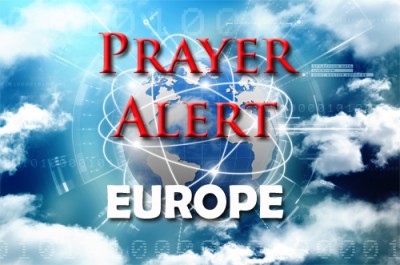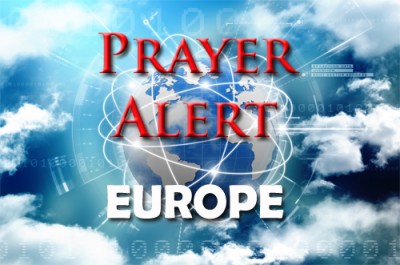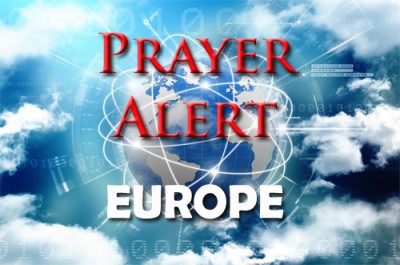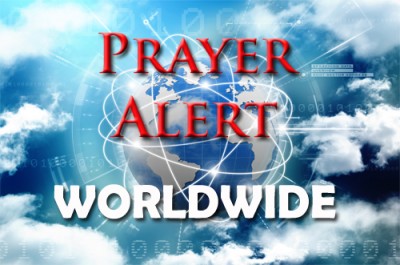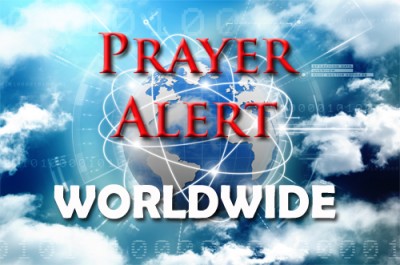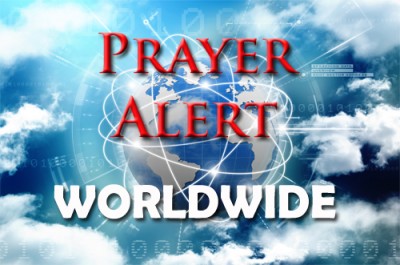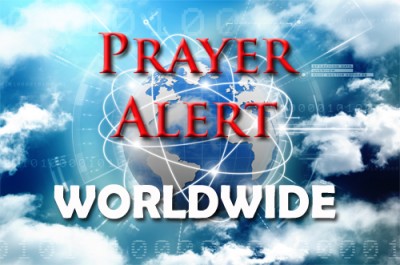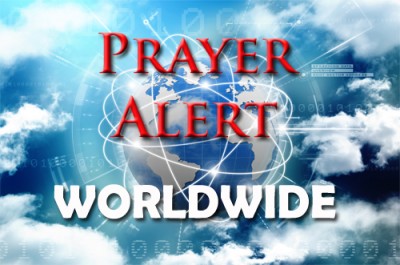Change driving political upheavals
09 Dec 2016Italian prime minister Matteo Renzi resigned after suffering a heavy defeat in a referendum over his plan to reform the constitution. In Germany a wave of violence is increasing, with over fifty attacks every day on German police. In France surveys show that a third of French Muslims want the full application of Sharia law, and the overwhelming majority of the French Muslims support jihad. Last month the next Secretary-General of the UN said, ‘Migration to Europe cannot be stopped, politicians should therefore ignore the will of voters.’ Reports from Belgrade say that refugees in South-Eastern Europe are becoming more and more indifferent - even to open hostility. A year ago, refugees were escorted by an army of aid institutions, but there is no such compassion now.
Latvia: freedom and soft hearts
09 Dec 2016Every week, Greater Europe Mission (GEMISSION) lifts a country in prayer. This week, we join in prayer for Latvia, with thick forests, cool beaches and a history of being bullied. Political power and cultural influence have changed hands time after time. Now fear of Russia and refugees are on Latvian minds. Prime minister Laimdota Straujuma resigned last December before her term had ended, and multiple candidates turned down the position. Last month a new leader was chosen - Maris Kucinskis. He represents the same party as the former prime minister (centre-right), but is taking a harder stance against immigration and the few hundred refugees Latvia has been charged to take by the EU. There is brokenness in Latvia. 92% of children living in orphanages have living parents, whose domestic problems cause them to give their children to institutions. Many girls graduating from orphanages become victims of human trafficking. Latvia has the world’s fourth highest suicide rate.
Ukraine: a family’s tragic story
09 Dec 2016The Ukraine humanitarian crisis is accompanied by an increase in persecuting evangelical Christians. Hundreds of Protestant pastors have suffered abduction, torture, arson, property confiscation, death threats, physical violence, expatriation, and even murder at the hands of the pro-Russian separatists. ‘I am Alexey and I have two daughters, Evelina and Milena. We have fled from Gorlovka not because of lack of good life. We had a complete family, a job, a house. Our girls were gladsome and cheerful. My wife Anna and I tried to make their childhood unforgettable and joyful. Till now I cannot believe that when I used to come home from my job, I was welcome with the prepared meal on a table by a loving arm and a joyful noise. But today everything is lost [because of the war]. I fathom that I’m not the only one like this, but one’s own grief is closer.’ See also
Bible translators face spiritual warfare
09 Dec 2016Christian persecution around the world has been increasing, and Bible translators in particular are facing a fierce onslaught of spiritual warfare. One report of Bible translators facing particular persecution comes from Wycliffe Associates. ‘We are getting new reports of oppression literally every week,’ stated Bruce Smith, CEO of the organisation. ‘Spiritual warfare has become the “new normal” for many national Bible translators.’ Forms of resistance to Bible translation include suddenly falling ill, being arrested and jailed, tortured, or even murdered. One translator even died in her sleep on her first day of translation work. Last year, Wycliffe launched a project aimed at translating the Bible into 314 languages in 76 countries. The founder of World Help, commenting on the increase in Christian persecution, said, ‘At no other time in history have Christians been as persecuted as they are now’. For intercession ideas go to
Yemen: months away from starving
09 Dec 20167,000 people have been killed in Yemen's war, and three million have fled. 14 million are hungry, with half of those on the brink of famine. Yemenis are at risk of catastrophic hunger. Food stocks are due to run out in April under punishing import restrictions. Food imports are half the amount needed to feed the war-torn country's population. ‘Yemen is being slowly starved to death,’ said Oxfam GB. First there were restrictions on imports of much-needed food, then the cranes and warehouses in the ports were bombed, then the roads and bridges. This bombing strategy is systematic. Yemen's economy, institutions, and the ability of parties involved in the war to feed people are ‘all on the brink of collapse’. Oxfam said, ‘As one of the principal backers of this brutal war, Britain needs to end its arms sales and military support to the Saudis and help put Yemen on the road to peace.’ See
Pakistan: prayer request
09 Dec 2016A missionary writes, ‘Some trust in chariots and some in horses, but we trust in the name of the LORD our God. (Ps 20:7) Visas: please pray about the ban on Christian workers getting visas (particularly Americans). This is a real problem. Health: pray for the many workers currently experiencing serious health problems. Christian TV banned: this law is also being brought against other minority groups. Several Christians have continued producing and broadcasting materials and have been arrested for it. Blocking satellite transmissions: they are trying to block satellite TV and radio; may they not be able to do this. Backup: there is a board managing 6-7 groups producing TV, radio and correspondence courses. Pray for backup copies to be made for every group. There have been times when police have come in unannounced and destroyed materials. Pray for protection over this material and wisdom in knowing how to proceed.’
Burma: a cry for help
09 Dec 2016Tens of thousands of Rohingya people - 30,000 in eight weeks - are fleeing from the military. ‘The Burmese army have set our houses on fire. Men are shot dead. We are in deep pain.’ The Rohingya are called the most persecuted people group in the world; officially disowned by the government and stateless, even though many have lived there for generations. The UN reported civilians being mown down by helicopter guns. The Kachin people of Burma (predominantly Christian) are also fleeing their homes - nearly 100,000 have fled, many now in makeshift camps in atrocious conditions. Some try to escape by boat, but no surrounding countries will grant asylum. 200+ villages and 66 churches have been destroyed, and landmines make travel dangerous. 5,300+ people have signed a petition calling for an end to this violence and to lift the block on aid to those fleeing. If persecution does not end, thousands will starve to death or be killed by the military.
Gaza: new generation to shake up Hamas?
09 Dec 2016Closed elections are being held for Hamas’ Shura Council. They will shape the future council and the leadership. Ismail Haniyeh (who left Gaza in September) is expected to be elected head of the political bureau - in effect leader of Hamas. This will be a new era following the departure of previous leader Khaled Meshaal. Historically, the Shura Council comprises religious leaders and imams. Now, well-educated individuals, professionals from Gaza and the West Bank and top Palestinian lecturers from around the world have joined it. A Gaza Hamas activist was asked, ‘What would the younger generation view as an achievement?’ His answer, ‘When past leaders recognise they cannot continue to decide things on their own; others in the movement have opinions.’ The election results at the end of December will reveal if Haniyeh prefers to remain in Qatar or live among his people and the youths who view his election as a harbinger of change.
